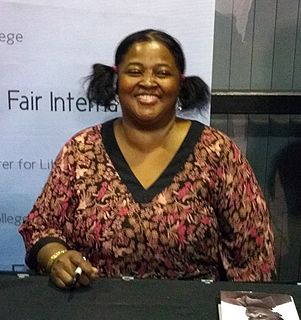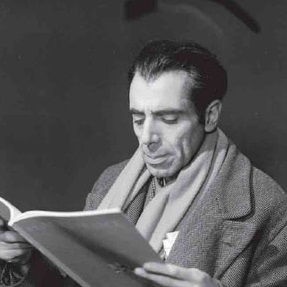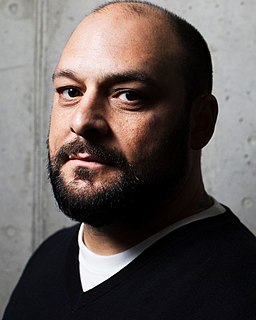A Quote by Patrisse Cullors
We rarely know what motivates somebody in their work, and it's usually a particular moment in their life. For me, that moment is my brother's incarceration and the ways in which this country has decided to neglect, abuse, and sometimes torture people with severe mental illness, especially if they're black.
Related Quotes
I also remember the moment my life changed, the moment I finally said, "I've had it!" I know I'm much more than I'm demonstrating mentally, emotionally, and physically in my life. I made a decision in that moment which was to alter my life forever. I decided to change virtually every aspect of my life. I decided I would never again settle for less that I can be.
We have a serious problem with incarceration in this country. It's destroying families, it's destroying communities and we're the most incarcerated country in the world, and when you look deeper and look at the reasons we got to this place, we as a society made some choices politically and legislatively, culturally to deal with poverty, deal with mental illness in a certain way and that way usually involves using incarceration.
I've never had a sustained period of medication for mental illness when I've not been on other drugs as well. It's just not something that I particularly feel I need. I know that I have dramatically changing moods, and I know sometimes I feel really depressed, but I think that's just life. I don't think of it as, "Ah, this is mental illness," more as, "Today, life makes me feel very sad." I know I also get unnaturally high levels of energy and quickness of thought, but I'm able to utilize that.
Cartier-Bresson has said that photography seizes a 'decisive moment', that's true except that it shouldn't be taken too narrowly...does my picture of a cobweb in the rain represent a decisive moment? The exposure time was probably three or four minutes. That's a pretty long moment. I would say the decisive moment in that case was the moment in which I saw this thing and decided I wanted to photograph it.
When you have mental illness you don't have a plaster or a cast or a crutch, that let everyone know that you have the illness, so people expect the same of you as from anyone else and when you are different they give you a hard time and they think you're being difficult or they think you're being a pain in the ass and they're horrible to you. You spend your life in Ireland trying to hide that you have a mental illness.
There was a guy with mental illness in the middle of the street just yelling and hollering. I have a number that I can call - it's not 911 - to tell them, "You need to help this man get out of the street." But you have to be that person, you have to pick up the phone, you have to do it; you can't just walk by and act like they're not people. They're somebody's kid, somebody's dad, somebody's brother.
Everything happens as though I were only one of the particular existences of some great incomprehensible and central being.... Sometimes this great totality of life appears to me so dramatically beautiful that it plunges me into ecstasy. But more often it seems like a monstrous beast that penetrates and surpasses me and which is everywhere, within me and outside me.... And terror grips and envelops me more powerfully from moment to moment.... My only way out is to write, to make others aware of it, so as not to have to feel all of it alone, to get rid of however small a portion of it.
People are amazed to realize they can enjoy the moment rather than be stressed by it when hurrying to an appointment. You can enjoy the energy movement of the moment when you do not have a mental projection of a future moment you need to get to. You still know that you need to get there, but it is the secondary consideration.
Actually, I don't think most people join white supremacist groups because of the ideology or dogma. They gravitate to these groups because they've hit potholes in their lives and there are things they can't figure out how to navigate on their own. This might be bullying, parental abuse or neglect, mental or physical illness, or, for adults, unemployment.
Through the present moment, you have access to the power of life itself, that which has traditionally been called "God." As soon as you turn away from it, God ceases to be a reality in your life, and all you are left with is the mental concept of God, which some people believe in and others deny. Even belief in God is only a poor substitute for the living reality of God manifesting every moment of your life.




































